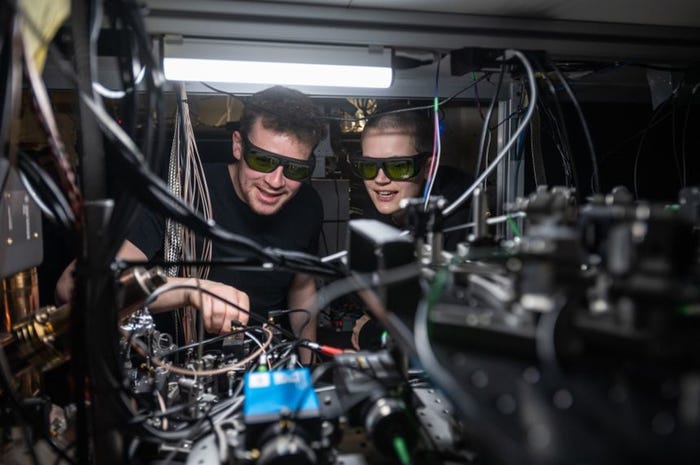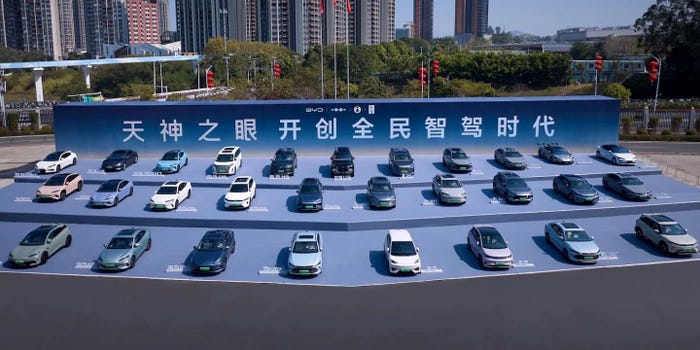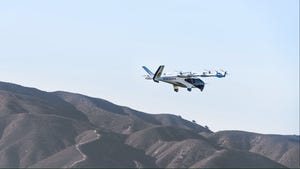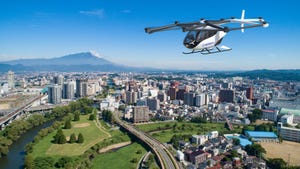Flying Vehicle Company Plans India Service; Backed by EmbraerFlying Vehicle Company Plans India Service; Backed by Embraer
The electric aerial vehicle has a range of 60 miles with service eventually planned for self-flying operations

An electric aerial vehicle (EAV) maker has created a joint venture to bring electric commuter flights to Bangalore, India.
Eve Air Mobility and Hunch Mobility agreed to work together to make Bangalore the launch city for urban air mobility in the region.
Eve Air is backed by Embraer and Hunch is a joint venture between Hunch Ventures and Blade Air Mobility.
“This launch city announcement is the next step in a great relationship that Hunch Mobility and Eve have built to co-create the urban air mobility ecosystem in India,” said Johann Bordais, CEO of Eve Air Mobility. “India is an incredibly important market for urban air mobility and our goal is to work with Hunch Mobility to provide residents with an additional efficient and affordable mode of transportation to ease commuting times in one of the most heavily populated cities in the world.”
With a population of more than 13 million, Bangalore is one of the most populated cities in the world.
The emergence of electric aviation with eVTOL (electric vertical takeoff and landing) vehicles is expected to significantly reduce the carbon footprint, noise and cost of flying, making it more accessible to the masses.
Eve and Hunch are not alone in targeting India for EAV services.
Archer Aviation and InterGlobe Enterprises recently signed a deal to launch an air taxi service in India in 2026, including the purchase of up to 200 of the Archer Midnight aircraft, according to the companies.
The Eve’s eVTOL vehicle is all electric with a range of 60 miles. The plan is to start the services with piloted vehicles and eventually move to self-flying operations.
Hunch also has agreed to purchase 200 of the Eve flying vehicles.
Eve Air Mobility also recently signed a deal with DHL Supply Chain to study the supply chain characteristics for Eve’s eVTOL vehicle operations.
The intent of the partnership is to identify best practices for supplying service centers with spare parts, such as batteries, as well as the requirements for transport, storage and disposal of supplies.
The companies aim to study the requirements for the distribution of parts and materials needed for maintenance and repairs. They also are expected to study battery logistics, an important component of the business.
The joint study is expected to include consideration of modes of transportation, frequency, delivery plan, logistics partners, potential locations for advanced inventories and infrastructure requirements.
Eve’s backlog orders of its EAV totals 2,850 aircraft, according to the company.
The company also has created urban air traffic management software with its first eVTOL deliveries and entry into service expected in early 2026.
Eve has agreements for its four-passenger EAV to fly in numerous countries in addition to Brazil.
Like what you've read? For more stories like this on flying cars and emerging technologies, sign up for our free daily email newsletter to stay updated!
Read more about:
Flying CarsAbout the Author
You May Also Like








